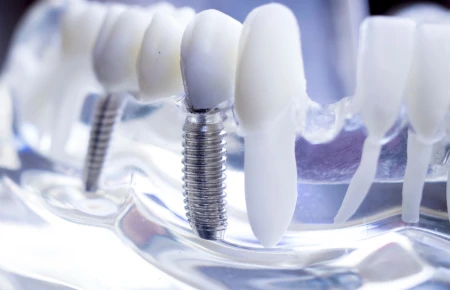The Benefits of Dental Implants: Why They Are the Best Choice for Missing Teeth

The Value of Dental Implants: Why They Stand Out for Missing Teeth
When a tooth is lost, it often goes beyond a gap in your smile; it can interfere with chewing, speaking, and feeling like yourself. Dental implants represent a modern, dependable answer that goes beyond mere appearance. Here’s why they are the wise long-term choice for anyone looking to restore both the look and the comfortable function of a full smile.
Understanding Dental Implants
At their core, dental implants are small titanium cylinders that are placed directly into the jawbone. Once the bone heals, these implants act like roots for new replacement teeth. They serve as stable anchors for single crowns, multi-tooth bridges, or complete dentures. Because the crowns placed on top are custom-made to match the color and shape of your smile, most people cannot tell the difference. Unlike traditional dentures, implants remain fixed in place, allowing you to bite, speak, and smile without worry.
Main Advantages of Dental Implants
Lifelong Confidence
The most immediate gift of dental implants is their appearance. Every implant is designed to mimic the appearance and shine of natural enamel, ensuring the restored tooth fits comfortably into your smile. This attention to detail means your smile looks complete again, and you can greet the world with the same confidence you had with your original teeth.
Improved Functionality
Dental implants restore the same level of comfort and confidence you get from natural teeth. Because they’re rooted securely in the jaw, you can talk and eat without the worry of movement, whether you’re biting into a crisp apple or sharing a laugh.
Longevity and Durability
Designed for the long haul, implants can easily outlast traditional dentures and bridges when maintained with regular oral hygiene. What starts as a higher initial cost shrinks over time, as the removable options often need replacement every few years.
Preservation of Bone Health
Implants stand apart because they mimic the natural tooth root, stimulating the jawbone and preventing the deterioration that follows tooth loss. This stimulation helps maintain bone density and preserves the natural contours of the face and mouth.
Dental Implants vs. Other Tooth Replacement Options
Though removable dentures and fixed bridges have long helped patients, each has limitations:
Dentures can pinch and slide, often needing messy adhesive for a secure fit.
Bridges require nearby teeth to be prepared for crowns, which can lead to additional problems in the future.
In contrast, implants stand alone without touching adjacent teeth, combining strength with a design that protects the mouth’s overall health for years to come.
What to Expect with Dental Implants
Initial Consultation: During your first appointment, your dentist will assess your overall health and examine your jawbone to determine if dental implants are a suitable option for you.
Surgical Placement: The implant itself is placed directly into your jawbone, and over the coming months, it will bond with the bone through a natural healing process.
Crown Attachment: After the implant has fully fused to the bone, a tailor-made crown will be secured to it, completing your new tooth
Frequently Asked Questions
1. Who can get implants? Almost anyone with healthy gums and enough bone to hold the implant can be a candidate. Your dentist will review your case during the first visit to confirm the details.
2. How long do dental implants last?
When properly cared for, dental implants can last a lifetime. The visible crown may need to be replaced every 10 to 15 years, but the implant fixture itself is designed to last for decades.
3. Are dental implants painful?
Most clinics do the implant procedure with local anesthesia, which keeps you comfortable during the surgery. Once it’s done, a bit of soreness is normal, but a painkiller you can get from the dentist usually keeps it in check.
4. How do I care for dental implants?
Taking care of your implants is similar to caring for your regular teeth. Brush, floss, and visit your dentist for regular checkups, and you’ll keep your implants and the surrounding gum tissue healthy.
5. Are dental implants expensive?
Dental implants may seem pricey upfront compared to dentures, but because they last longer and often require fewer adjustments, they can be the more intelligent, more economical choice over time.






